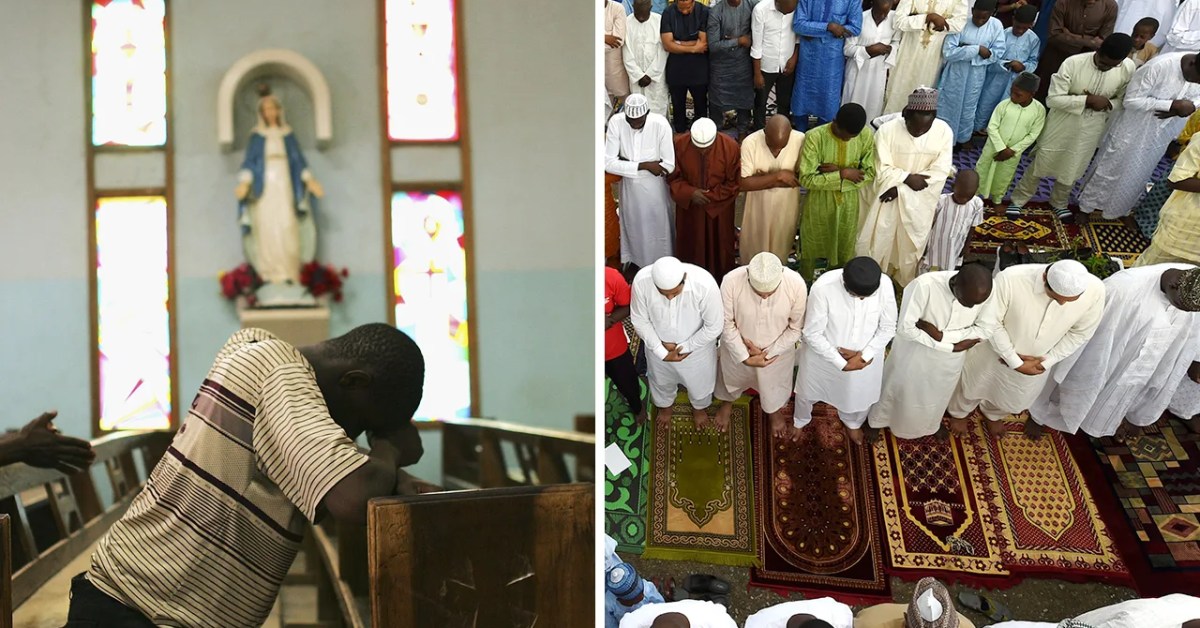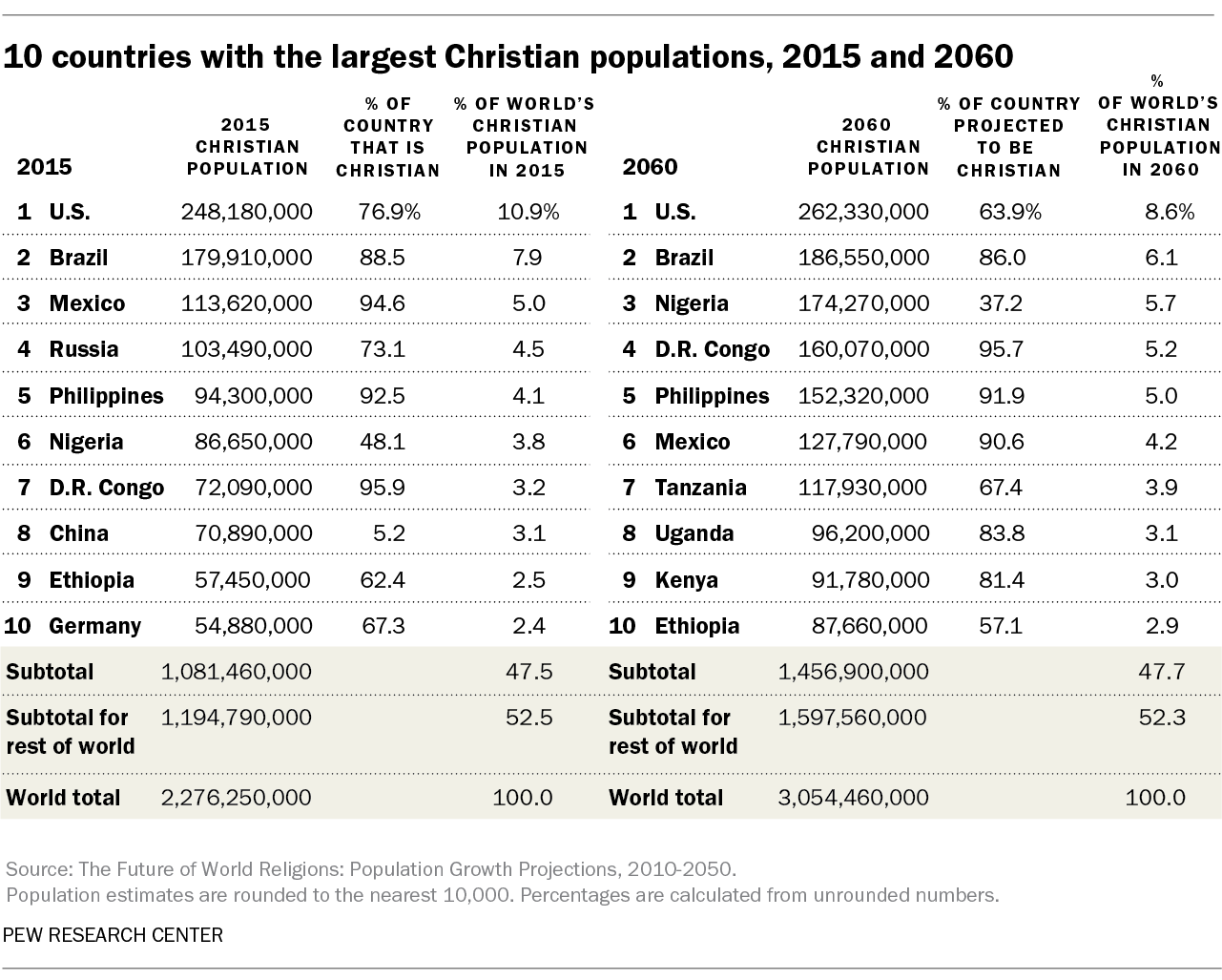Airbus Jr
Banned
Officially an atheist nation and a place where the government shutters some Christian churches, China is on course to become home to more Christians than any country in the world by 2030.
Christianity also is growing rapidly in some other Asian nations and sub-Saharan Africa as people in countries modernizing at a breakneck pace seek solace from the leading religion of western, technologically advanced nations.
"As countries get incorporated into the global capitalist world, a lot of uncertainty and stress is introduced into society," said Michael Emerson, an academic who focuses on the sociology of religion. "Christianity is seen as one way of modernizing and westernizing because Christianity is viewed as the faith of the west."
Emerson, provost of North Park University in Chicago, and other professors discussed the causes of Christianity's growth in Asia and Africa at a forum put on by Rice University's religion and public life program on Wednesday. In China, most people identify as atheists, influenced by communist party teachings about religion. Religious activities were banned in China from 1966-1979.
Since the Communist Party relaxed its policies about religion, traditional Chinese religions - Buddhism, Taoism and Confucianism - have returned. And Christianity has grown alongside them.
As China introduced more capitalist features into its economy, the rate of Christianity's growth accelerated, said Fenggang Yang, a Purdue University sociology professor and author of "Religion in China: Survival and Revival under Communist Rule." Adherents to Christianity, he said, have been increasing about 10 percent annually in China for nearly 40 years.
Christianity is the dominant religion in the United States, the world's third most populous country, and Brazil, the fifth most populous. But China will be home to more Christians than these countries by 2030, Yang said. With 1.4 billion people, China's population, of course, dwarfs the U.S. population of 329 million.
In Harris County, Asians made up 7 percent of the population in 2016, and 1 percent of the population speaks Chinese, according to the U.S. Census Bureau.
Christianity is growing in China even though the government does not promote the faith, has closed churches and jailed some believers. Exactly how many Chinese are Christian is difficult to estimate because some people will not reveal that they are Christians - they fear government reprisal, Yang said. In surveys, about 3 percent of Chinese say they are Christian. Yang said the number is more likely at least 5 percent of the population.
"You can't evangelize or proselytize," said Emerson, a former Rice University sociology professor. "So some churches go underground. The Chinese government can't control the growth of Christianity."
Yang said there were many more true believers in communism's ideology before the Chinese government began opening up the economy in the 1980s.
Communist ideology was a belief system, said Yang, who taught Marxism and communism at a Chinese university in the 1980s. De-emphasizing communist ideology, he said, left "a vacuum or void" in some Chinese.
Yang said he and many other Chinese lost faith in Communist ideology when the government sent tanks into Tianamen Square in 1989 and cracked down on student-led protesters seeking democratic reforms. And as the Chinese economy grew and the pace of modernization picked up, some Chinese have turned to religion.
"During rapid social change, people want something. Many people were looking for some religion, some alternative to communism," Yang said.
In the years after the Tianamen Square protests, Yang, the former teacher of Marxist thought, said he stopped being an atheist and became a Christian while studying philosophy and earning his doctorate at Catholic University of America.
Emerson said that as a faith, Christianity presents a cosmology in which there are two realms: real life in which there is suffering and change and the entirely different spiritual plain on which God exists and salvation lies.
In countries where Christianity is now growing, some of these nations' traditional religions, he said, present a different cosmology, one in which God is everywhere or infused in real life.
In societies undergoing rapid modernization, Christianity may hold appeal. "If you introduce uncertainty and stress and change, it may be hard to say God is in all of this," Emerson said.
Christianity's explanation for a society undergoing a sea change, he said, may seem more satisfying: God and salvation exist apart from this rapidly changing world.
Christianity also is growing rapidly in some other Asian nations and sub-Saharan Africa as people in countries modernizing at a breakneck pace seek solace from the leading religion of western, technologically advanced nations.
"As countries get incorporated into the global capitalist world, a lot of uncertainty and stress is introduced into society," said Michael Emerson, an academic who focuses on the sociology of religion. "Christianity is seen as one way of modernizing and westernizing because Christianity is viewed as the faith of the west."
Emerson, provost of North Park University in Chicago, and other professors discussed the causes of Christianity's growth in Asia and Africa at a forum put on by Rice University's religion and public life program on Wednesday. In China, most people identify as atheists, influenced by communist party teachings about religion. Religious activities were banned in China from 1966-1979.
Since the Communist Party relaxed its policies about religion, traditional Chinese religions - Buddhism, Taoism and Confucianism - have returned. And Christianity has grown alongside them.
As China introduced more capitalist features into its economy, the rate of Christianity's growth accelerated, said Fenggang Yang, a Purdue University sociology professor and author of "Religion in China: Survival and Revival under Communist Rule." Adherents to Christianity, he said, have been increasing about 10 percent annually in China for nearly 40 years.
Christianity is the dominant religion in the United States, the world's third most populous country, and Brazil, the fifth most populous. But China will be home to more Christians than these countries by 2030, Yang said. With 1.4 billion people, China's population, of course, dwarfs the U.S. population of 329 million.
In Harris County, Asians made up 7 percent of the population in 2016, and 1 percent of the population speaks Chinese, according to the U.S. Census Bureau.
Christianity is growing in China even though the government does not promote the faith, has closed churches and jailed some believers. Exactly how many Chinese are Christian is difficult to estimate because some people will not reveal that they are Christians - they fear government reprisal, Yang said. In surveys, about 3 percent of Chinese say they are Christian. Yang said the number is more likely at least 5 percent of the population.
"You can't evangelize or proselytize," said Emerson, a former Rice University sociology professor. "So some churches go underground. The Chinese government can't control the growth of Christianity."
Yang said there were many more true believers in communism's ideology before the Chinese government began opening up the economy in the 1980s.
Communist ideology was a belief system, said Yang, who taught Marxism and communism at a Chinese university in the 1980s. De-emphasizing communist ideology, he said, left "a vacuum or void" in some Chinese.
Yang said he and many other Chinese lost faith in Communist ideology when the government sent tanks into Tianamen Square in 1989 and cracked down on student-led protesters seeking democratic reforms. And as the Chinese economy grew and the pace of modernization picked up, some Chinese have turned to religion.
"During rapid social change, people want something. Many people were looking for some religion, some alternative to communism," Yang said.
In the years after the Tianamen Square protests, Yang, the former teacher of Marxist thought, said he stopped being an atheist and became a Christian while studying philosophy and earning his doctorate at Catholic University of America.
Emerson said that as a faith, Christianity presents a cosmology in which there are two realms: real life in which there is suffering and change and the entirely different spiritual plain on which God exists and salvation lies.
In countries where Christianity is now growing, some of these nations' traditional religions, he said, present a different cosmology, one in which God is everywhere or infused in real life.
In societies undergoing rapid modernization, Christianity may hold appeal. "If you introduce uncertainty and stress and change, it may be hard to say God is in all of this," Emerson said.
Christianity's explanation for a society undergoing a sea change, he said, may seem more satisfying: God and salvation exist apart from this rapidly changing world.






